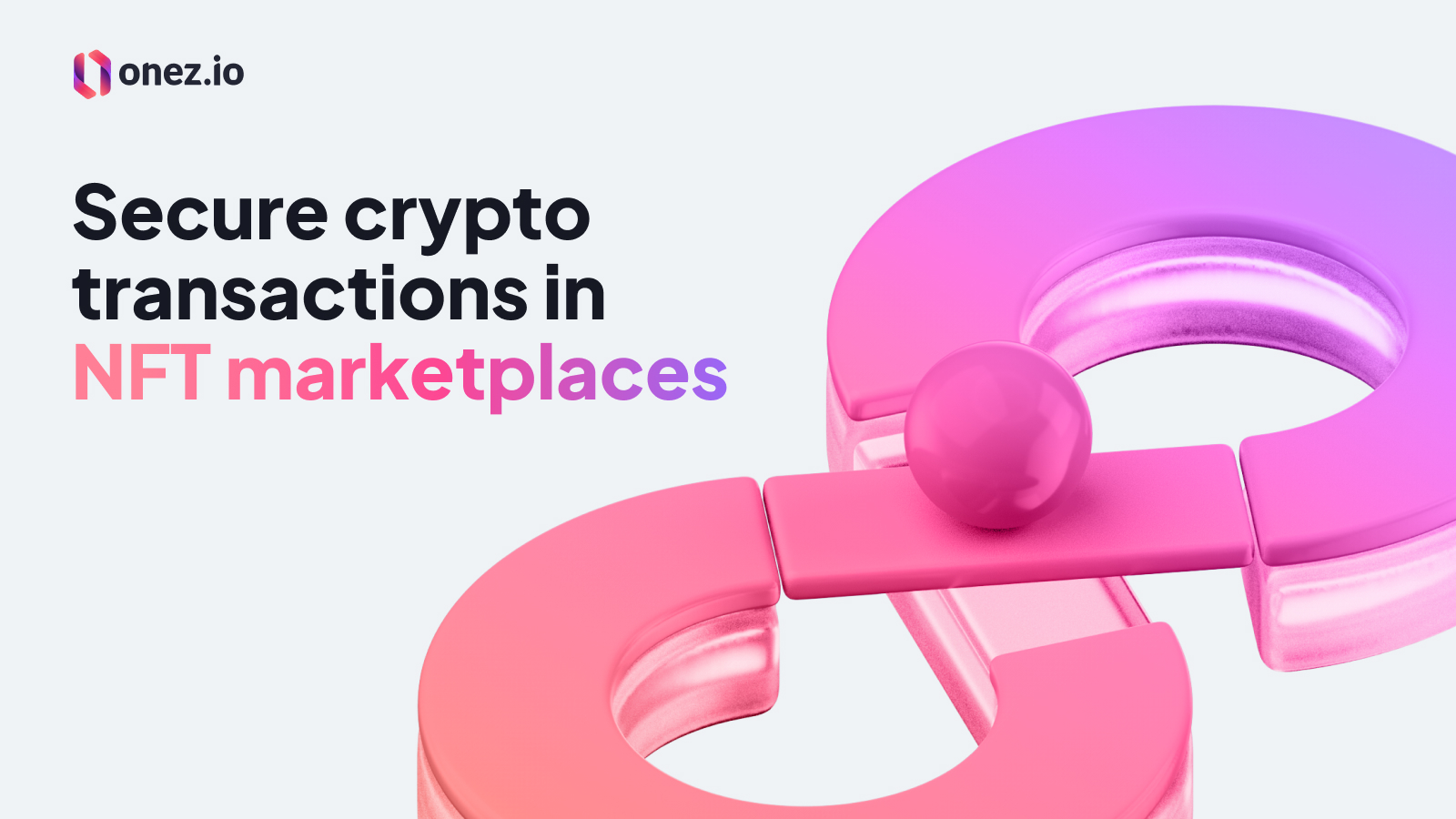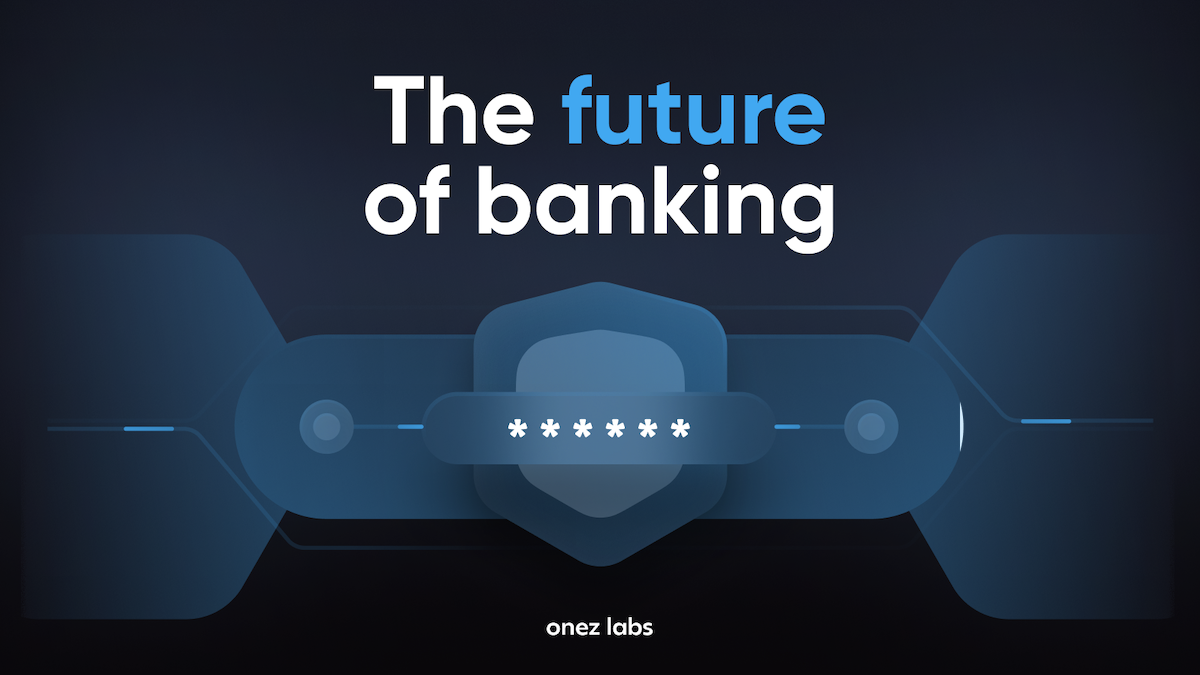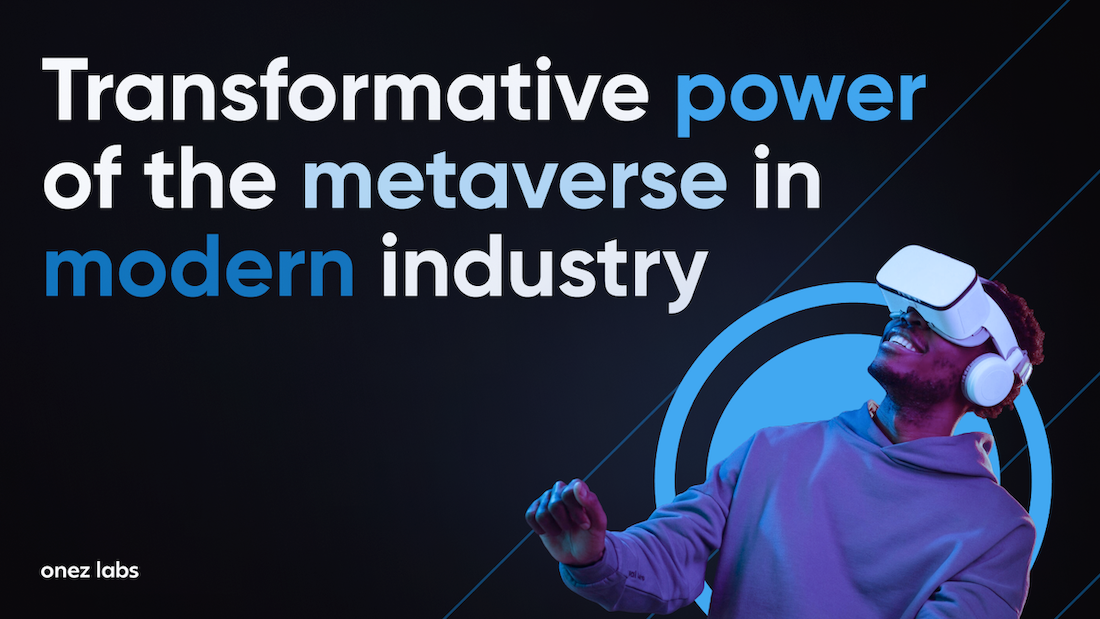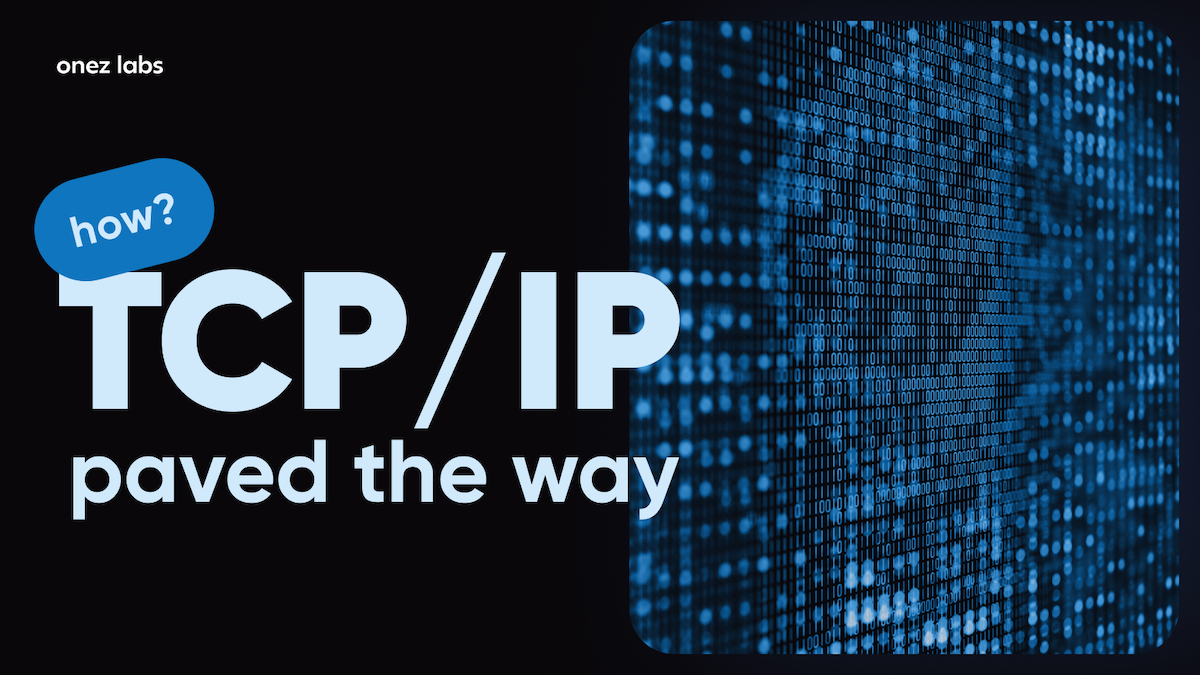Table of Contents
- Introduction: Navigating the world of NFT marketplace development
- The essence of NFT marketplace development services
- Cost of developing an NFT marketplace
- Creating an NFT marketplace platform
- DIY NFT marketplace creation
- Building a Web3 marketplace
- Profitability of NFT marketplaces
- Onez’s contribution to NFT marketplace security
- Conclusion
Introduction: Navigating the world of NFT marketplace development
In the rapidly expanding digital landscape, Non-Fungible Token (NFT) marketplaces have emerged as significant platforms for trading exclusive digital assets. These advanced marketplaces, built on blockchain technology, have revolutionized the concept of ownership and valuation in the digital realm. A critical factor for the success and dependability of these platforms lies in the implementation of secure cryptocurrency transactions, which are essential for establishing trustworthy and user-friendly NFT ecosystems. When engaging in the development of NFT marketplaces, it is essential to acknowledge the pivotal role played by development services such as Onez in ensuring the security and efficiency of these digital trading environments.
The essence of NFT marketplace development services
Unraveling the significance of NFT platforms
NFT marketplace development services involve different activities and technical skills to create strong platforms for trading digital assets. These services go beyond creating a website or an app; they involve using advanced blockchain technologies, creating smart contracts, and ensuring a smooth user experience.
NFT marketplaces are different from traditional e-commerce platforms because they focus on unique digital assets that cannot be divided and can be verified using blockchain technology. This uniqueness is what gives NFTs their value and drives demand, whether it’s for digital art, collectibles, or other types of digital content. The development services for these marketplaces should prioritize features such as integrating smart contracts, developing on the Ethereum blockchain, and tokenizing digital art.
Core components of NFT marketplace development
Developing an NFT marketplace involves several key components that ensure its functionality and security. These components are essential for the smooth operation and protection of the marketplace and its users. Let’s explore each of these components in more detail:
- Blockchain integration: Blockchain technology is the basic foundation of any NFT marketplace. It is important in making sure that each NFT is unique and cannot be copied or faked. NFT marketplaces use blockchain to create a safe and transparent space for artists, collectors, and fans to buy, sell, and trade digital assets. This technology changes the way we think about owning and verifying things in the digital world, giving creators and collectors new opportunities.
- Smart contract development: Smart contracts are contracts written in code that execute themselves. They have changed how we buy, sell, and bid in the marketplace. With blockchain technology, smart contracts make transactions more transparent and trustworthy. They remove the need for middlemen and lower the risk of fraud. Smart contracts automate transactions once certain conditions are met, making the process faster and saving time for everyone involved. Because of this, businesses and individuals can confidently engage in secure and efficient transactions using smart contracts.
- User interface and experience: To attract and keep users on the platform, it’s crucial to have a user-friendly interface. This not only improves the overall user experience but also boosts user engagement and satisfaction. By providing an intuitive and easy-to-use interface, users will feel more comfortable using the platform, which leads to more people using it for a longer time. Moreover, a user-friendly interface encourages positive word-of-mouth and referrals because happy users are more likely to recommend the platform to others. Therefore, investing in developing and optimizing a user-friendly interface is a strategic approach that greatly contributes to the platform’s long-term success and growth.
- Cryptocurrency payment gateway: Integrating a secure and efficient payment gateway for crypto transactions is essential for a seamless user experience. It provides a reliable platform for conducting transactions, enhancing security and reducing the risk of fraud. A well-integrated payment gateway streamlines payment processes, ensuring faster and more efficient transactions. Prioritizing this integration is crucial for businesses to meet customer needs and stay competitive in the market.
- Wallet integration: One way to improve the user experience is by providing integrated wallets. With integrated crypto wallets, users can securely store and effortlessly send and receive their NFTs. This integration simplifies the process and adds convenience, making the overall experience more enjoyable and hassle-free.
Cost of developing an NFT marketplace
Insights into the cost factors involved in NFT marketplace development
The cost of developing an NFT marketplace can vary widely depending on several factors. These include the complexity of the platform, the level of customization required, the choice of blockchain, and the security features implemented. Typically, the development cost can range from tens of thousands to hundreds of thousands of dollars. Factors influencing the cost include:
- Platform complexity: Adding more features and customizations can make the product better and more user-friendly. Users can customize it to their needs and be happier with it. It can also help the product stand out from competitors. However, it’s important to find a balance between customization and development time.
- Blockchain choice: One important thing to think about when working with different blockchains is the difference in costs for deploying smart contracts and making transactions. These costs can vary a lot depending on the blockchain platform you’re using. It’s really important to consider these cost differences because they can have a big impact on whether it makes sense or not to use a particular blockchain for smart contracts..
- Security measures: Implementing strong security measures is important in protecting sensitive data and preventing unauthorized access, fraud, and cyber attacks. By using advanced security methods like multi-factor authentication, encryption, and regular security audits, you can ensure the highest level of protection for your systems and users. While investing in secure protocols may increase initial costs, it is a necessary investment that will bring long-term benefits by reducing the risks of fraud and hacking.
Creating an NFT marketplace platform
Step-by-step guide on developing an NFT marketplace
Creating an NFT marketplace is a complicated process that requires careful planning, strategic thinking, and flawless execution. To successfully create an NFT marketplace, you need to follow a series of important steps, such as:
- Market research and conceptualization: The first thing you need to do to create a successful marketplace is to conduct thorough research. This will help you understand your target audience, their needs, and preferences. It will also help you define what makes your marketplace unique and appealing to users, setting it apart from competitors.
- Selecting the best Blockchain: After finishing the market research, the next important step is choosing the right blockchain platform for the marketplace. The platform chosen should match the marketplace’s goals, like scalability, security, and transaction speed. It should also meet the specific needs of the target audience, making sure the user experience is smooth.
- User interface design: A good user interface is important for creating a user experience that is easy to understand and enjoyable. The user interface should look nice, be easy to use, and work well on different devices. By following design principles that prioritize the user, the marketplace can make users happy and keep them engaged.
- Creating smart contracts: Smart contracts are important for managing the marketplace. These contracts have predefined rules and conditions, which help ensure transparent and secure transactions between buyers and sellers. It is essential to develop accurate and efficient smart contracts to ensure the marketplace runs smoothly and users trust the system.
- Integrating a payment gateway: To make transactions in the marketplace smooth, it’s important to use a safe and trustworthy payment gateway. This lets users easily buy, sell, and trade NFTs with cryptocurrencies. The payment gateway should work with many different cryptocurrencies and have strong security to keep user funds safe.
- Testing and launch: Before releasing the marketplace to the public, it is important to do thorough testing to find and fix any possible problems. Rigorous testing makes sure that the platform works well and that user data and transactions are safe. Once all the necessary tests are done, the marketplace can be launched to the public with confidence, ready to offer a smooth and trusted NFT trading experience.
DIY NFT marketplace creation
Feasibility and considerations for individuals or businesses looking to create their own NFT marketplace
Creating a decentralized non-fungible token (NFT) marketplace from scratch can be a highly rewarding and potentially lucrative venture. It offers a unique opportunity for individuals or businesses with the necessary technical expertise and resources to explore the exciting world of blockchain technology and digital art. By establishing an NFT marketplace, you can tap into the growing demand for digital collectibles and provide a platform for artists, creators, and collectors to showcase and trade their unique creations.
When embarking on this endeavor, it is crucial to carefully consider various factors that can greatly impact the success of your NFT marketplace. These factors include:
- Technical expertise: To help build our platform, it’s important to have a good understanding of blockchain technology, smart contracts, and front-end development. Knowing these things will make it easier for you to navigate our marketplace confidently.
- Regulatory compliance: As our platform deals with NFT trading, it’s important to understand the legal rules that apply to this industry. This includes respecting intellectual property rights and following KYC/AML regulations to ensure a safe trading environment. By keeping up with the changing laws, you will help us meet regulatory requirements.
- Security: Ensuring the safety of our platform and users is extremely important to us. So, it’s crucial to have strong security measures in place to protect against possible threats. By using advanced security protocols and staying alert to new risks, you can help us build a secure and reliable platform for everyone.
- Community building: Creating a strong and active community is crucial for our marketplace to thrive. By actively connecting with artists, creators, and collectors, you will help foster a sense of belonging and collaboration within our community. Your efforts in building this community will not only improve the user experience but also support the growth and long-term success of our marketplace.
Building a Web3 marketplace
Exploring the specifics of developing a Web3-based NFT marketplace
Developing a powerful and effective Web3-based NFT marketplace involves using advanced decentralized technologies. This includes blockchain, smart contracts, and decentralized storage systems. By using these tools, developers can create a secure and efficient marketplace that changes how digital assets are bought, sold, and traded. It is also important to integrate with different blockchain networks and NFT standards to provide a diverse ecosystem. Additionally, user-friendly interfaces, easy navigation, and strong security measures should be implemented to improve the user experience and build trust in the marketplace. Embracing innovation, staying updated with industry trends, and collaborating with artists, collectors, and developers are key to creating a successful Web3-based NFT marketplace that advances the digital art and collectibles industry.
- Decentralized Application (DApp) Development: Creating a marketplace that runs on a decentralized network, ensuring transparency and user control.
- Smart Contract Integration: Utilizing smart contracts for automating transactions and ensuring the authenticity and uniqueness of NFTs.
- Web3 Technology Solutions: Implementing solutions like decentralized identity and governance models to enhance user engagement and trust.
Profitability of NFT marketplaces
Analysis of the potential profitability and business models of NFT marketplaces
NFT marketplaces have proven to be highly profitable, offering various avenues to generate substantial revenue. Some of the ways to earn income through NFT marketplaces include:
- Transaction fees. NFT marketplaces usually take a fee from each transaction that happens on their platform. This is how they make money from people buying and selling NFTs.
- Listing fees. NFT creators might need to pay a fee to showcase their digital collectibles on the marketplace, which gives the platform more money.
- Royalties. One cool thing about NFTs is that creators can earn money every time their NFT is sold again. Marketplaces usually handle these payments and take a cut of the transaction as their fee.
- Premium services. Some NFT marketplaces provide extra services to artists and collectors for a fee. These services include better visibility, marketing campaigns, and special partnerships. This helps them make more money.
- Sponsored content. NFT marketplaces can work with brands or organizations to promote sponsored NFT collections or collaborations, earning money through these partnerships.
- Secondary market trading. NFT marketplaces can also benefit from the active secondary market, where collectors buy and sell NFTs among themselves. Platforms can earn a commission from these secondary market transactions.
By using these money-making opportunities, NFT marketplaces can make a lot of money while giving artists and collectors a place to show and trade their digital assets.
Onez’s contribution to NFT marketplace security
Highlighting how Onez’s services enhance security in NFT marketplace transactions
Onez plays a crucial role in improving the security and integrity of NFT marketplace transactions. It does this by using advanced technologies and innovative solutions to reduce risks and threats. Onez’s strong security measures create a reliable foundation for the smooth operation of the NFT marketplace, building trust among all participants.
- Blockchain Security Protocols: Implementing advanced security measures to protect against fraud and unauthorized access.
- Smart Contract Audits: Ensuring that smart contracts are secure, efficient, and free of vulnerabilities.
- Crypto Wallet Integration: Providing secure wallet solutions for seamless and safe transactions.
- Continuous Monitoring and Updates: Keeping the platform updated with the latest security measures and blockchain advancements.
Conclusion
The growing world of NFT marketplaces is changing how digital assets are traded and valued. As these platforms become more popular, it’s important to have secure crypto transactions. This ensures trust, reliability, and user confidence in these digital marketplaces.
Onez plays a crucial role in this ecosystem by offering comprehensive NFT marketplace development services. They prioritize security, use advanced blockchain solutions, and provide user-friendly platforms. Onez is setting a standard for how NFT marketplaces should work. Their commitment to making transactions secure while maintaining a good user experience is important for creating a safe and thriving environment for digital asset trading.
In conclusion, as the NFT space grows, secure transactions will continue to be a key factor in the success and sustainability of NFT marketplaces. Companies like Onez, with their innovative development services, are not just participating in this digital revolution; they are shaping the future of how we interact with, trade, and value digital art and collectibles.
FAQs About NFT Marketplaces and secure transactions
- What makes a transaction secure in an NFT marketplace? Secure transactions in an NFT marketplace are ensured through blockchain technology, smart contract integrity, secure payment gateways, and robust security protocols to protect against fraud and hacking.
- How does Onez enhance the security of NFT marketplaces? Onez enhances security through rigorous smart contract audits, advanced blockchain security protocols, secure crypto wallet integration, and continuous monitoring and updates to safeguard against emerging threats.
- Can individuals create their own NFT marketplace? Yes, individuals with the necessary technical expertise and resources can create their own NFT marketplace, but they must consider factors like security, regulatory compliance, and community engagement.
- What are the potential revenue streams for an NFT marketplace? Revenue streams for an NFT marketplace include transaction fees, minting fees, premium services, and partnerships or collaborations with artists and brands.
- What is the importance of Web3 technology in NFT marketplaces? Web3 technology is important in NFT marketplaces as it enables decentralized, transparent, and user-controlled trading environments, enhancing trust and security in digital asset transactions.



